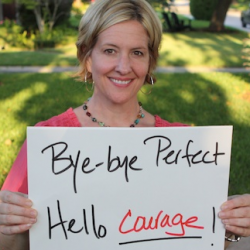 Isn’t it funny how new buzzwords come along every so often, and get everyone talking? I recently enjoyed an article on Forbes.com wherein the author posed the question, “Is it okay for leaders to show vulnerability?”
Isn’t it funny how new buzzwords come along every so often, and get everyone talking? I recently enjoyed an article on Forbes.com wherein the author posed the question, “Is it okay for leaders to show vulnerability?”
When I hear the word vulnerability, I think of people showing their innermost selves, or willingly putting themselves in positions where they might get hurt. Taking risks. Being more open and real.
The author’s point was that showing vulnerability makes a leader seem more human, more relatable, and more transparent — which is a good thing. Being vulnerable does require that a person show one’s true self, not just project an image. As one writer on the topic said, vulnerability is the opposite of posing.
We often have an image of strong leaders as strong, invulnerable, “bulletproof,” showing no weakness, always knowing what to do (and doing it well). But that’s just not the human condition, is it?
As frightening as vulnerability might sound, think of the emotional exhaustion inherent in endlessly posing as someone bigger, stronger, more stoic, more knowledgeable, more perfect than you really are.
A quick Google search on the topic turned up 69 million results, including a myriad of different articles on this subject with such intriguing titles as:
Vulnerability and Inspired Leadership
3 Reasons Vulnerability is Crucial to Great Leadership
The Value of Vulnerable Leadership
One Leadership Skill That Will Set You Apart (Vulnerability)
Although each writer had a different slant on vulnerability, all of them associated it with strength, not weakness. Each article extolled the power of vulnerability for truly inspired leadership. One thing really struck me over and over in these articles: The writers listed the ability to admit one’s mistakes and take full responsibility as a major part of allowing oneself to be more vulnerable.
I have to say, in my book, that just comes down to plain old accountability. The very leadership quality that we at BRODY have been teaching for more than 30 years.
One writer, an executive coach, mentioned the difficulty she’d had with a big CEO client, trying to teach him to be vulnerable in front of his staff. The very word seemed to scare the Armani’s right off of him. It does sound daunting, doesn’t it? I wonder if she would have had an easier time if she had gone “old school” and simply taught him the power and potential of true accountability?
What do you think? Do you see an overlap between vulnerability and accountability?
Sounds kind of like vulnerability, doesn’t it? No, the two concepts are not exactly the same, but there is a large area of overlap.
So, if you’ve been struggling with vulnerability as a leader, and can’t quite seem to cotton to it, perhaps all you need is to reframe the concept.
Here’s some more food for thought on this topic, revisiting some of my blogs.
What Does Accountability Really Mean?
Six Steps to Greater Personal and Business Accountability
Want a Competitive Advantage in Business? Start With Your Attitude
